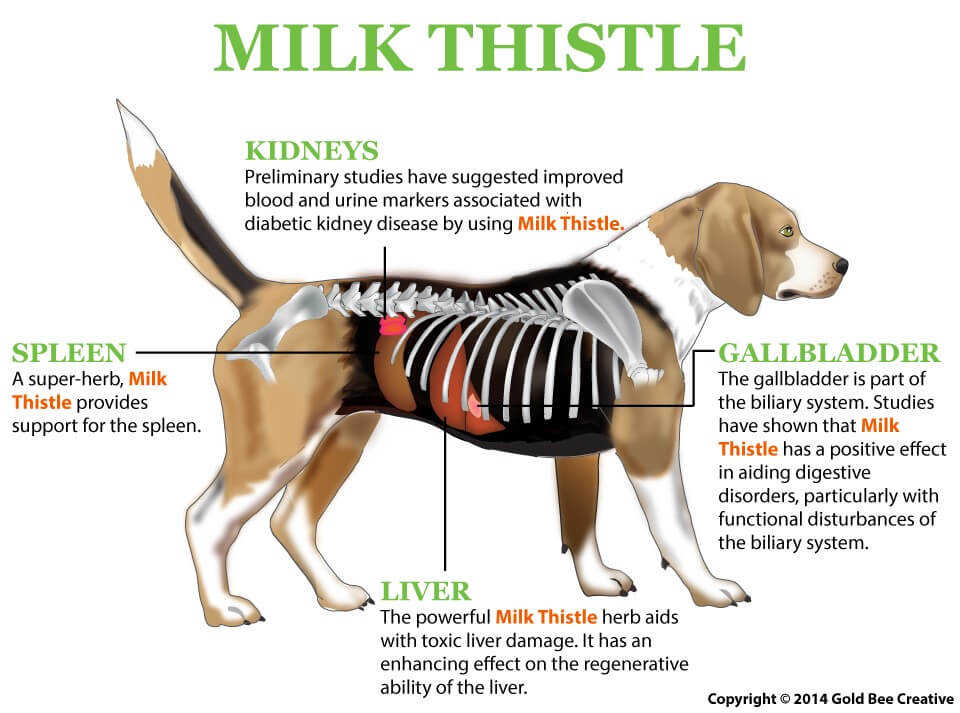heartworm support

free shipping over $100 (USA & Canada)
1-877-937-4372 the pet expert hotline

Heartworm in dogs is a serious and potentially fatal disease caused by foot-long worms that can live inside your pet’s heart, lungs, and associated blood vessels. Mosquitoes transfer these parasites from one animal to another, so whenever your dog has some outdoor access, they are at risk of infection. That’s why being proactive is essential in the fight against heartworms, particularly during the hotter months when many pets increase their exposure to the outside world.
Heartworms are transmitted through the bite of a mosquito, which carries immature larvae from the parasite Dirofilaria immitis from an infected animal host to a new pet. From the mosquito bite site, the larvae travel through the pet’s body all the way to the heart and pulmonary vessels in the lungs, where it matures into a full-grown worm and reproduces.
Unfortunately, there are few clinical signs in the early stages of the disease, which is why testing is so important. As the disease advances, the most common symptoms are:
An early diagnosis can go a long way regarding heartworms in dogs. The veterinarian will choose the tests used based on the clinical signs. Chest X-rays and routine laboratory tests, for example, can help detect the presence of a parasite. An antigen test can detect heartworm proteins released by adult female heartworms into the animal’s bloodstream for a confirmed diagnosis.

In extreme cases, pets with heartworms may collapse or even die if left untreated. For this reason, early diagnosis and immediate vet care are essential.
There are a few options for heartworm disease treatment in dogs. Although necessary, the pharmaceuticals currently available to address this parasite can cause serious side effects like toxicity or life-threatening blood clots in the dog’s lungs. Natural herbal supplements can be used in conjunction with vet-prescribed medication to help support the pet’s body through the treatment.
Another less viable treatment option for dogs is the removal of heartworms surgically. However, this type of operation comes with risks, and if the parasites are not removed intact, there can be potentially severe complications, including death.
The most important thing that pet owners can do to protect their furkiddo from heartworm disease is prevention. Several effective medications that safely prevent parasitic infections are available. Please talk to your vet before medicating your pup.
However, if your little one already has heartworms, the best you can do is follow the vet’s recommendations, offer a balanced diet, add complementary supplements to their regimen, and of course, give a lot of love. All those measures will help to support your little one’s immunity to fight against this disease.
Some NHV supplements may help your little one prevent this disease or support their body as they are treated to fight the infection.
NHV Hearty-Heart contains herbs that support the heart’s function and health, which is significantly affected by heartworms.
NHV Inulin-PK can help repair internal damage that might have been caused by parasites and help relieve the discomfort heartworms can cause.
NHV Milk Thistle is very beneficial in protecting the liver and kidneys against the side effect of the medications used to treat and prevent heartworm disease.
As it is a disease that affects the lungs, NHV Resp-Aid may help decrease the inflammation and help your little one to breathe better.
Lastly, NHV Turmeric and NHV PetOmega 3 have anti-inflammatory properties that support the lungs and heart. So, they may be beneficial for a pet suffering from heartworm disease.
These supplements are not intended to solely treat existing heartworm infections. This is a very extreme parasite infestation, and immediate vet support is needed. All NHV supplements can be safely given alongside vet-prescribed medication. We recommend a break of at least 30 minutes between our supplements and the pharmaceuticals.
It’s also important to point out that each case is unique, and in the same way that the vet-prescribed treatment might vary, so can the natural supplements. Therefore, if your furkiddo has heartworm disease, please contact one of our pet experts, who can guide you on the best regimen for your little one.
heartworm support

Hearty-Heart, Inulin-PK & Milk Thistle
bundle and save with pet expert kits
3 month supply for a small to medium size pet.
Heartworms can have drastic effects on your pets entire body. Treatment is necessary, but can also put a lot of stress on the body. Help to support your pet through the treatment of heartworm with this blend of supplements:
These supplements are not intended to treat existing heartworm infections. They can safely be used in conjunction with your veterinarian's recommended regimen of pharmaceutical heartworm treatment to help support your pet's body through the treatment of heartworm.


Heartworms can have drastic effects on your pets entire body. Treatment is necessary, but can also put a lot of stress on the body. Help to support your pet through the treatment of heartworm with this blend of supplements:
These supplements are not intended to treat existing heartworm infections. They can safely be used in conjunction with your veterinarian's recommended regimen of pharmaceutical heartworm treatment to help support your pet's body through the treatment of heartworm.

Heartworms are spread to pets through the bites of mosquitos. Once passed to a pet, the heartworm larva begins to grow and mature in the bloodstream of the pet. After 6 months these worms become mature and take up residence in the heart of the pet. This obviously has detrimental effects on the health of the pet. While pharmaceutical treatment for this parasite is necessary, the treatment can also put quite a bit of stress on the body. Hearty-Heart will help to support your pet's heart and circulatory system, while Inulin-PK will help to repair any damage caused by the parasites. Milk Thistle is a support for the liver, which is important in helping the body to process the harsh pharmaceutical medications required to treat heartworm.
HEARTY-HEART
Hawthorne – the most powerful herb for the heart health in dogs. Hawthorn acts as a cardio tonic, which helps stabilize the heart’s activity based on what a dog’s heart needs; either to be stimulated or reduced. Hawthorn has traditionally been used for heart failure, heart palpitations, heart weakness, and for the circulatory system. This herb works by dilating the vessels and the coronary arteries, which improves the metabolic process and the blood supply to the heart and the rest of the body. Hawthorn may help with regulating your dog’s heart rate, coronary flow, and blood pressure. It also has a soothing and sedative effect that helps reduce stress.
Balsam Poplar – Encourages circulation and supports blood flow. Balsam Poplar has historically been used in North America by indigenous peoples for coughs, respiratory issues, and as a food for horses. This herb has strong anti-inflammatory and discomfort relieving properties.
Hops – Helps relax tension and anxiety while supporting circulation. This herb has calming, mild diuretic, and digestive properties. Study’s have found that it helps dogs with restlessness and anxiety when experiencing physical stress.
Valerian – Beneficial for heart palpitations and regulates the nervous system. It is a genital sedative that work on the nervous system by helping to calm a dog without making a pet drowsy. Valerian has been used by herbalist to help with anxiety and insomnia.
Woody Betony – This herb is one of the most valued in herbal medicine and has been used for decades for various ailments. It acts as mild stimulant to the heart. Woody Betony is a nerve tonic that nourishes and builds vital energy. It contains glycosides, which may help reduce blood pressure in canines.
Lobelia – Causes immediate relaxation and expansion of the respiratory system that allows oxygenated blood to flow freely. It eases coughs brought on by heart issues.
European Mistletoe – This plant is considered to be a sacred plant and was called “all-heal" by the Celtic people. The parts used are the leaves and stems. Mistletoe has a long history in herbalism. It is used for blood pressure, and to lower the heart rate, helps with anxiety, restlessness and helps with energy. Studies show that the herb Mistletoe has been used for various cancers as well.
Motherwort – Has a strengthening effect, especially on a weak heart. It is considered to be a mild sedative with relaxing properties. Motherwort has been used in herbal preparations to help ease heart palpations and rapid heart rates. It is a cardiotonic, which has traditionally been used to improve blood flow and to support heart health.
Pulsatilla – this herb is know to be antispasmodic which is considered to be beneficial in relaxing the heart muscle and helps sooth and relieve coughing.
INULIN-PK
Elecampane – Has a paralyzing effect on the central nervous system of worms.
Wormwood – Expels intestinal worms and parasite infestations.
Jamaica Quassia – Helps expel parasitic worms from the body. Enhances other properties in Inulin PK.
Papaya – Helps dissolve the worm’s outer layer.
Oregon Grape – Helps relieve indigestion and malabsorption. Also has antibiotic and immunostimulatory properties.
Fennel – Relieves digestive problems and relaxes spasms.
Bacopa – Clears toxins, reduces inflammation, and improves healing.
Milk Thistle – Protects, strengthens, and stimulates new cell production in the liver.
Celandine – Protects the liver, improves bile flow, and helps to emulsify gallbladder content.
MILK THISTLE
Milk Thistle, Purified water and glycerin
Select your pet's weight to determine the correct dose.
To be taken twice daily. Determine your pet’s weight and then use the easy chart below to determine the correct dose. This is the minimum dosage.
Pet's Weight Dosage
0 - 15 lb = 0.5 ml
16 - 30 lb = 1.0 ml
31 - 45 lb = 1.5 ml
46 - 60 lb = 2.0 ml
61 - 75 lb = 2.5 ml
Over 75 lb = 3.0 ml
How to Administer
Shake well before use. The easiest method is to use the dropper provide and place the drops into your pet’s food or favorite treat. You can also use the dropper and squirt directly into the pet’s mouth.
Some pets can be finicky, if this occurs consider hiding the drops in foods most pet’s love such as fish, chicken or yogurt or a favorite treat. If your pet only eats dry food then soak a few kibbles at feeding time.
For Best Results
Herbal dietary supplements are beneficial to the health and wellbeing of your pet and are safe for long-term use. Every pet responds to natural herbal supplements differently, therefore it is important to be consistent and administer the product daily. Supplements generally take two to four weeks to take effect, however this will vary from one animal to the next.
Product Storage
All NHV Natural Pet Products are pure herbal extracts and contain no artificial additives, preservatives or coloring. Shelf life after opening is 6 months and must be refrigerated after opening.
Cautions and Contraindications
Do not use in pregnant or nursing animals. Speak to your vet before using our products. A second visit is recommended if your pet’s condition does not improve, or deteriorates after continued use of the supplements.
Heartworms are spread to pets through the bites of mosquitos. Once passed to a pet, the heartworm larva begins to grow and mature in the bloodstream of the pet. After 6 months these worms become mature and take up residence in the heart of the pet. This obviously has detrimental effects on the health of the pet. While pharmaceutical treatment for this parasite is necessary, the treatment can also put quite a bit of stress on the body. Hearty-Heart will help to support your pet's heart and circulatory system, while Inulin-PK will help to repair any damage caused by the parasites. Milk Thistle is a support for the liver, which is important in helping the body to process the harsh pharmaceutical medications required to treat heartworm.
HEARTY-HEART
Hawthorne – the most powerful herb for the heart health in dogs. Hawthorn acts as a cardio tonic, which helps stabilize the heart’s activity based on what a dog’s heart needs; either to be stimulated or reduced. Hawthorn has traditionally been used for heart failure, heart palpitations, heart weakness, and for the circulatory system. This herb works by dilating the vessels and the coronary arteries, which improves the metabolic process and the blood supply to the heart and the rest of the body. Hawthorn may help with regulating your dog’s heart rate, coronary flow, and blood pressure. It also has a soothing and sedative effect that helps reduce stress.
Balsam Poplar – Encourages circulation and supports blood flow. Balsam Poplar has historically been used in North America by indigenous peoples for coughs, respiratory issues, and as a food for horses. This herb has strong anti-inflammatory and discomfort relieving properties.
Hops – Helps relax tension and anxiety while supporting circulation. This herb has calming, mild diuretic, and digestive properties. Study’s have found that it helps dogs with restlessness and anxiety when experiencing physical stress.
Valerian – Beneficial for heart palpitations and regulates the nervous system. It is a genital sedative that work on the nervous system by helping to calm a dog without making a pet drowsy. Valerian has been used by herbalist to help with anxiety and insomnia.
Woody Betony – This herb is one of the most valued in herbal medicine and has been used for decades for various ailments. It acts as mild stimulant to the heart. Woody Betony is a nerve tonic that nourishes and builds vital energy. It contains glycosides, which may help reduce blood pressure in canines.
Lobelia – Causes immediate relaxation and expansion of the respiratory system that allows oxygenated blood to flow freely. It eases coughs brought on by heart issues.
European Mistletoe – This plant is considered to be a sacred plant and was called “all-heal" by the Celtic people. The parts used are the leaves and stems. Mistletoe has a long history in herbalism. It is used for blood pressure, and to lower the heart rate, helps with anxiety, restlessness and helps with energy. Studies show that the herb Mistletoe has been used for various cancers as well.
Motherwort – Has a strengthening effect, especially on a weak heart. It is considered to be a mild sedative with relaxing properties. Motherwort has been used in herbal preparations to help ease heart palpations and rapid heart rates. It is a cardiotonic, which has traditionally been used to improve blood flow and to support heart health.
Pulsatilla – this herb is know to be antispasmodic which is considered to be beneficial in relaxing the heart muscle and helps sooth and relieve coughing.
INULIN-PK
Elecampane – Has a paralyzing effect on the central nervous system of worms.
Wormwood – Expels intestinal worms and parasite infestations.
Jamaica Quassia – Helps expel parasitic worms from the body. Enhances other properties in Inulin PK.
Papaya – Helps dissolve the worm’s outer layer.
Oregon Grape – Helps relieve indigestion and malabsorption. Also has antibiotic and immunostimulatory properties.
Fennel – Relieves digestive problems and relaxes spasms.
Bacopa – Clears toxins, reduces inflammation, and improves healing.
Milk Thistle – Protects, strengthens, and stimulates new cell production in the liver.
Celandine – Protects the liver, improves bile flow, and helps to emulsify gallbladder content.
MILK THISTLE
Milk Thistle, Purified water and glycerin
Select your pet's weight to determine the correct dose.
To be taken twice daily. Determine your pet’s weight and then use the easy chart below to determine the correct dose. This is the minimum dosage.
Pet's Weight Dosage
0 - 15 lb = 0.5 ml
16 - 30 lb = 1.0 ml
31 - 45 lb = 1.5 ml
46 - 60 lb = 2.0 ml
61 - 75 lb = 2.5 ml
Over 75 lb = 3.0 ml
How to Administer
Shake well before use. The easiest method is to use the dropper provide and place the drops into your pet’s food or favorite treat. You can also use the dropper and squirt directly into the pet’s mouth.
Some pets can be finicky, if this occurs consider hiding the drops in foods most pet’s love such as fish, chicken or yogurt or a favorite treat. If your pet only eats dry food then soak a few kibbles at feeding time.
For Best Results
Herbal dietary supplements are beneficial to the health and wellbeing of your pet and are safe for long-term use. Every pet responds to natural herbal supplements differently, therefore it is important to be consistent and administer the product daily. Supplements generally take two to four weeks to take effect, however this will vary from one animal to the next.
Product Storage
All NHV Natural Pet Products are pure herbal extracts and contain no artificial additives, preservatives or coloring. Shelf life after opening is 6 months and must be refrigerated after opening.
Cautions and Contraindications
Do not use in pregnant or nursing animals. Speak to your vet before using our products. A second visit is recommended if your pet’s condition does not improve, or deteriorates after continued use of the supplements.
respiratory support

Vet-Formulated Remedy for Respiratory Infection in Dogs
buy 2 and save $3
3 month supply for a small to medium size
A 100% natural plant-based herbal remedy to help you dog fight infection and help relieve shortness of breath.

A 100% natural plant-based herbal remedy to help you dog fight infection and help relieve shortness of breath.
Dogs are susceptible to upper respiratory infections just like humans, and once infected, they can be highly contagious. Some breeds of dogs are more prone to getting respiratory infections, such as the Boston Terrier and Shih-Tzu. Find out if your dog breed is more prone to breathing difficulties and respiratory infections, and effective remedies for respiratory infection in dogs at NHV.
Symptoms of Respiratory Infections in Dogs
The symptoms are very similar to infection in humans.
Causes of Respiratory Infection in Dogs
Kennel cough is a common ailment among dogs that can be caused by a bacteria or viral infection.
NHV’s plant-based remedies can provide support along with vet-recommended treatment for respiratory infections in dogs. Read Bailee's tale of how NHV’s Resp-aid came to her rescue for allergic bronchitis.
You can read more about NHV Natural Pet Products and if you have questions about holistic supplements including our natural remedies for respiratory infections in dogs, ask an NHV expert, because, at NHV we want you and your canine companion to breathe easy naturally.
Your dog will breathe easier with NHV’s Resp-Aid, an all-natural plant-based formula containing these nine powerful herbs.
Beneficial Ingredients in NHV’s Natural Remedies for Respiratory Infections in Dogs
Select your pet's weight to determine the correct dose.
To be taken twice daily. Determine your pet’s weight and then use the easy chart below to determine the correct dose. This is the minimum dosage.
Pet's Weight Dosage
0 - 15 lb = 0.5 ml
16 - 30 lb = 1.0 ml
31 - 45 lb = 1.5 ml
46 - 60 lb = 2.0 ml
61 - 75 lb = 2.5 ml
Over 75 lb = 3.0 ml
How to Administer
Shake well before use. The easiest method is to use the dropper provide and places the drops into your pet’s food or favorite treat. You can also use the dropper and squirt directly into the pet’s mouth.
Some pets can be finicky, if this occurs consider hiding the drops in foods most pet’s love such as fish, chicken or yogurt or a favorite treat. If your pet only eats dry food then soak a few kibbles at feeding time.
For Best Results
Herbal dietary supplements are beneficial to the health and wellbeing of your pet and are safe for long-term use. Every pet responds to natural herbal supplements differently, therefore it is important to be consistent and administer the product daily. Supplements generally take two to four weeks to take effect, however this will vary from one animal to the next.
Product Storage
All NHV Natural Pet Products are pure herbal extracts and contain no artificial additives, preservatives or coloring. Shelf life after opening is 6 months and must be refrigerated after opening.
Cautions and Contraindications
Do not use in pregnant or nursing animals. Speak to your vet before using our products. A second visit is recommended if your pet’s condition does not improve, or deteriorates after continued use of the supplements.
All information provided by NHV Natural Pet Products is for educational purposes only.
Dogs are susceptible to upper respiratory infections just like humans, and once infected, they can be highly contagious. Some breeds of dogs are more prone to getting respiratory infections, such as the Boston Terrier and Shih-Tzu. Find out if your dog breed is more prone to breathing difficulties and respiratory infections, and effective remedies for respiratory infection in dogs at NHV.
Symptoms of Respiratory Infections in Dogs
The symptoms are very similar to infection in humans.
Causes of Respiratory Infection in Dogs
Kennel cough is a common ailment among dogs that can be caused by a bacteria or viral infection.
NHV’s plant-based remedies can provide support along with vet-recommended treatment for respiratory infections in dogs. Read Bailee's tale of how NHV’s Resp-aid came to her rescue for allergic bronchitis.
You can read more about NHV Natural Pet Products and if you have questions about holistic supplements including our natural remedies for respiratory infections in dogs, ask an NHV expert, because, at NHV we want you and your canine companion to breathe easy naturally.
Your dog will breathe easier with NHV’s Resp-Aid, an all-natural plant-based formula containing these nine powerful herbs.
Beneficial Ingredients in NHV’s Natural Remedies for Respiratory Infections in Dogs
Select your pet's weight to determine the correct dose.
To be taken twice daily. Determine your pet’s weight and then use the easy chart below to determine the correct dose. This is the minimum dosage.
Pet's Weight Dosage
0 - 15 lb = 0.5 ml
16 - 30 lb = 1.0 ml
31 - 45 lb = 1.5 ml
46 - 60 lb = 2.0 ml
61 - 75 lb = 2.5 ml
Over 75 lb = 3.0 ml
How to Administer
Shake well before use. The easiest method is to use the dropper provide and places the drops into your pet’s food or favorite treat. You can also use the dropper and squirt directly into the pet’s mouth.
Some pets can be finicky, if this occurs consider hiding the drops in foods most pet’s love such as fish, chicken or yogurt or a favorite treat. If your pet only eats dry food then soak a few kibbles at feeding time.
For Best Results
Herbal dietary supplements are beneficial to the health and wellbeing of your pet and are safe for long-term use. Every pet responds to natural herbal supplements differently, therefore it is important to be consistent and administer the product daily. Supplements generally take two to four weeks to take effect, however this will vary from one animal to the next.
Product Storage
All NHV Natural Pet Products are pure herbal extracts and contain no artificial additives, preservatives or coloring. Shelf life after opening is 6 months and must be refrigerated after opening.
Cautions and Contraindications
Do not use in pregnant or nursing animals. Speak to your vet before using our products. A second visit is recommended if your pet’s condition does not improve, or deteriorates after continued use of the supplements.
All information provided by NHV Natural Pet Products is for educational purposes only.
liver support

Support for liver and kidney detox and cancer support in dogs
3 month supply for a small to medium size pet
These effects help to remove chemicals and toxins that can accumulate in your dog’s system. It is one of the few herbs with no equivalent in conventional medicine.


These effects help to remove chemicals and toxins that can accumulate in your dog’s system. It is one of the few herbs with no equivalent in conventional medicine.

Milk Thistle is a powerful herb that’s been used by humans for thousands of years. The active ingredient, silymarin, has been shown through scientific studies to possess strong anti-inflammatory, antioxidant, and detoxifying properties. It also promotes cellular regeneration and repair.
This supplement by NHV Natural Pet Products uses 100% natural milk thistle to support dogs through liver and kidney conditions in addition to conventional treatment by their veterinarian.
Milk thistle improves kidney function due to the damage from:
The extraordinary antioxidant properties of milk thistle for dog extract acts to:
The scientific name for milk thistle is Silybum Marianum. It’s also referred to as wild artichoke and holy thistle.
Milk thistle for dog liver support can be used in conjunction with conventional treatments and is glycerin based and safe for long-term use. You can read more about the benefits of using milk thistle on Dr. Hillary Cook’s blog.
At NHV, all of our products including milk thistle for dog kidney support are plant-based and make excellent proactive support for many health conditions. If you have questions on milk thistle for dogs or any of our holistic supplements, you can ask an expert at NHV because we put your pet first when it comes to health and healing naturally.

Select your pet's weight to determine the correct dose.
To be taken twice daily. Determine your pet’s weight and then use the easy chart below to determine the correct dose. This is the minimum dosage.
Pet's Weight Dosage
0 - 15 lb = 0.5 ml
16 - 30 lb = 1.0 ml
31 - 45 lb = 1.5 ml
46 - 60 lb = 2.0 ml
61 - 75 lb = 2.5 ml
Over 75 lb = 3.0 ml
How to Administer
Shake well before use. The easiest method is to use the dropper provide and places the drops into your pet’s food or favorite treat. You can also use the dropper and squirt directly into the pet’s mouth.
Some pets can be finicky, if this occurs consider hiding the drops in foods most pet’s love such as fish, chicken or yogurt or a favourite treat. If your pet only eats dry food then soak a few kibbles at feeding time.
For Best Results
Herbal dietary supplements are beneficial to the health and wellbeing of your pet and are safe for long-term use. Every pet responds to natural herbal supplements differently, therefore it is important to be consistent and administer the product daily. Supplements generally take two to four weeks to take effect, however this will vary from one animal to the next.
Product Storage
All NHV Natural Pet Products are pure herbal extracts and contain no artificial additives, preservatives or coloring. Shelf life after opening is 6 months and must be refrigerated after opening.
Cautions and Contraindications
Do not use Milk Thistle in pregnant or nursing animals. Speak to your vet before using our products. A second visit is recommended if your pet’s condition does not improve, or deteriorates after continued use of the supplements.
All information provided by NHV Natural Pet Products is for educational purposes only.
Milk Thistle is a powerful herb that’s been used by humans for thousands of years. The active ingredient, silymarin, has been shown through scientific studies to possess strong anti-inflammatory, antioxidant, and detoxifying properties. It also promotes cellular regeneration and repair.
This supplement by NHV Natural Pet Products uses 100% natural milk thistle to support dogs through liver and kidney conditions in addition to conventional treatment by their veterinarian.
Milk thistle improves kidney function due to the damage from:
The extraordinary antioxidant properties of milk thistle for dog extract acts to:
The scientific name for milk thistle is Silybum Marianum. It’s also referred to as wild artichoke and holy thistle.
Milk thistle for dog liver support can be used in conjunction with conventional treatments and is glycerin based and safe for long-term use. You can read more about the benefits of using milk thistle on Dr. Hillary Cook’s blog.
At NHV, all of our products including milk thistle for dog kidney support are plant-based and make excellent proactive support for many health conditions. If you have questions on milk thistle for dogs or any of our holistic supplements, you can ask an expert at NHV because we put your pet first when it comes to health and healing naturally.

Select your pet's weight to determine the correct dose.
To be taken twice daily. Determine your pet’s weight and then use the easy chart below to determine the correct dose. This is the minimum dosage.
Pet's Weight Dosage
0 - 15 lb = 0.5 ml
16 - 30 lb = 1.0 ml
31 - 45 lb = 1.5 ml
46 - 60 lb = 2.0 ml
61 - 75 lb = 2.5 ml
Over 75 lb = 3.0 ml
How to Administer
Shake well before use. The easiest method is to use the dropper provide and places the drops into your pet’s food or favorite treat. You can also use the dropper and squirt directly into the pet’s mouth.
Some pets can be finicky, if this occurs consider hiding the drops in foods most pet’s love such as fish, chicken or yogurt or a favourite treat. If your pet only eats dry food then soak a few kibbles at feeding time.
For Best Results
Herbal dietary supplements are beneficial to the health and wellbeing of your pet and are safe for long-term use. Every pet responds to natural herbal supplements differently, therefore it is important to be consistent and administer the product daily. Supplements generally take two to four weeks to take effect, however this will vary from one animal to the next.
Product Storage
All NHV Natural Pet Products are pure herbal extracts and contain no artificial additives, preservatives or coloring. Shelf life after opening is 6 months and must be refrigerated after opening.
Cautions and Contraindications
Do not use Milk Thistle in pregnant or nursing animals. Speak to your vet before using our products. A second visit is recommended if your pet’s condition does not improve, or deteriorates after continued use of the supplements.
All information provided by NHV Natural Pet Products is for educational purposes only.